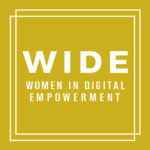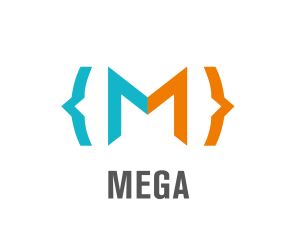As part of International Women’s Day 2020, WIDE (Women In Digital Empowerment) interviewed and highlighted women on their backgrounds and careers. A look back at the interview with Martine Kerschen, Project Manager, at the Ministry of Digitalization
How long have you been working at the Ministry of Digitalization and what are your missions there?
I joined the team of the Ministry of Digitalization as a Project Manager in July 2019 to take care of the aspect of citizen participation in the framework of administrative simplification. The objective is to simplify the (administrative) life of female users by considering their needs and desires.
To reach this goal, I use, among others, the methodology of Design Thinking, of the Design Thinking Service, which promotes innovations between the intersection of human attractiveness, economic and technical feasibility – even digital. The goal of this user-centred, creative and iterative approach is to gather as many different perspectives as possible around a current situation that requires change. In this context, an isolated approach is always to be considered as part of a global context responsible for a life event that should be considered as a whole.
Creating a good user experience, therefore, requires citizen participation. In order to facilitate the integration of the public in this process, I am currently analyzing the implementation of a citizen participation platform dedicated to administrative simplification.
What led you to get this job at the ministry?
I have a degree in “product design” with a specialisation in “systems design – man and systems”, nowadays better known as “Service Design”, from the University of Kassel, Germany. My core competencies are to design and develop creative user-centred solutions in complex contexts.
After short stops in business consulting and trend research, I finished my studies with a thesis on “The future of mobility in Luxembourg City – user experience and service design”, realized in collaboration with Integrated Place. This led me to Sales-Lentz (SLA s.a) where I was mainly responsible for the development of new mobility services, digital transformation and the development of existing products, including among others Night Rider and flibco.com. In July 2019, I then joined the department team.
At first glance, my background seems peculiar, even extraordinary in terms of a career choice. Indeed, the term “design” is often interpreted or perceived in a traditional and restrictive way in our society. But design is more than the appearance and aesthetics of a product. Design also means planning and designing from the desires and needs of the users, in order to facilitate their daily life and to adapt to their environment.
What is your secret to being a successful woman in digital nowadays?
In my daily work, I don’t respond to any predefined stereotype. I am the spokesperson for female users and I take the role of all citizens. I am convinced that my skills and specialization are decisive for my professional success. However, I am convinced that in order to advance in society’s digital transformation, the consideration of heterogeneous teams, in general, is essential: about gender, but especially concerning skills, interests, lifestyles, origins and much more.
Taking into account that the majority of the profiles in the ICT sector responsible for digitalization are currently male, the sector represents a huge potential for specialized women in different areas. To be able to create heterogeneous work groups, on the one hand there must be enough competent women and on the other hand enough emancipated men who recognize that other ways of thinking, other non-technical skills, other forms of expression and other points of view represent an enrichment and an added value in the working world.
Women in Tech Magazine
Release date: 5 March 2020
By: Women In Digital Empowerment (WIDE)
This interview has been translated from French to English.


